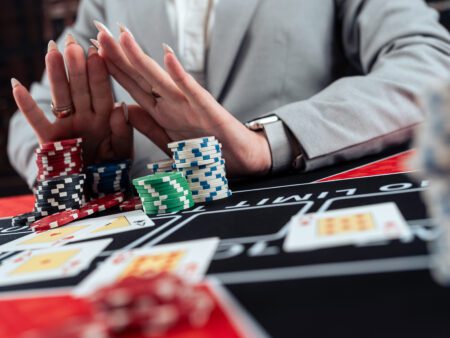Delve into the psychology of addiction and understand the dark side of online gambling. Discover the factors that contribute to addictive behavior and the impact on mental health.
The Psychology of Addiction: Understanding the Dark Side of Online Gambling
Did you know that online gambling has the potential to become addictive?
When we think of addiction, substances like drugs and alcohol often come to mind. However, addiction can manifest in various forms, and online gambling is one such example. In this article, we delve into the psychology of addiction to help you understand the dark side of online gambling.
The Allure of Online Gambling
Online gambling offers convenience, anonymity, and the thrill of potentially winning big. It combines the excitement of traditional gambling with the accessibility of the internet, making it alluring to many individuals.
However, what starts as a form of entertainment can sometimes spiral into a full-blown addiction, impacting a person’s mental and emotional well-being.
The Dopamine Connection
Dopamine, often referred to as the ‘feel-good’ neurotransmitter, plays a significant role in the addictive nature of online gambling. The anticipation of winning triggers the brain to release dopamine, creating a pleasurable sensation and reinforcing the behavior.
This dopamine rush makes online gambling an enticing and rewarding experience. However, it can also lead to compulsive behavior as individuals chase that euphoric feeling of success.
The Role of Emotional Regulation
Emotional regulation is crucial when it comes to managing online gambling habits. Gambling can be an emotional rollercoaster, with highs and lows that can be profoundly impactful.
Individuals who struggle with emotional regulation may turn to online gambling as a way to cope with negative emotions or escape from reality. The temporary distraction and illusion of control can provide relief, albeit fleeting.
Understanding emotional triggers and developing healthier coping mechanisms is essential in finding a balanced approach to online gambling.
The Illusion of Control
Online gambling can create a sense of control over the outcome. Players often believe that their skills or strategies can influence the results. This illusion of control can be a driving factor in continued gambling despite negative outcomes.
Recognizing that online gambling is a game of chance, where outcomes are determined by algorithms and random number generators, can help individuals maintain a healthier perspective.
The Impact on Mental Health
Online gambling addiction can have severe consequences for mental health. Excessive gambling can lead to anxiety, depression, and feelings of guilt or shame. It can strain relationships, finances, and overall well-being.
If you or someone you know is struggling with online gambling addiction, seeking professional help is crucial. There are resources available to assist in overcoming addiction and finding healthier ways to cope.
Conclusion
Online gambling can be an enjoyable form of entertainment when approached responsibly. However, it is important to be aware of the potential dark side of addiction. Understanding the psychological factors at play can help individuals make informed decisions and maintain a healthy relationship with online gambling.
Remember, always gamble responsibly and prioritize your mental and emotional well-being.










